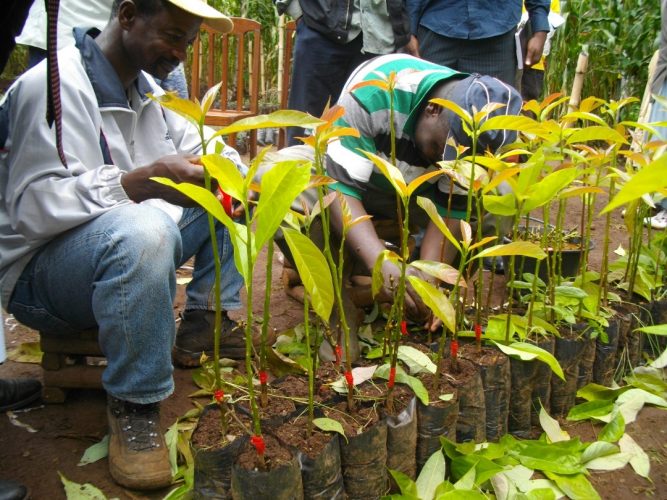3,520: this is the number of young men and women aged 18 to 35 that the government of Cameroon has just called to train in the business of farming operations. The announcement was published on February 27, 2020. This competitive examination is offering young people the opportunity to realize their dream in a chosen sector, not only providing a job but also creating wealth for an inclusive and sustainable development of rural areas. For two years, these young people will be trained in 88 agro-pastoral and rural public and private specialized centers operational in the 10 administrative regions of the country.
The initiative is jointly led by the ministry in charge of Agriculture and Rural Development and that in charge of Livestock, Fisheries and Animal Industries. It falls within the framework of the Support Program for the Renovation and Development of vocational training in the Agriculture, Livestock and Fisheries sectors. Ultimately, the initiative aims to equip these young farm operators for better integration into the concerned sectors to take advantage of its economic virtues, promote socio-cultural balance and contribute to improving the attractiveness of agricultural professions.
This biennial initiative is in it’s sixth iteration and is enjoying increasing success with 4,696 farm operators already trained and at work. Each session leads to the autonomy of each young trainee who benefits from the participative teaching process for the development, validation and implementation of his or her personal professional project. The training develops learners’ skills in areas such as farm management, natural resource management, agricultural production management, animal husbandry and fish farming, processing, marketing, corporate communication, socio-cultural education and citizenship.
Training takes place alternately between the socio-professional environment and the training center. The learner is supported in the development of his professional integration project and can benefit from the support of his training center for its implementation. The youngster is forced into residential life during the training phases at the center and therefore benefits from a food ration.
Candidates must have, at a minimum, the First School Leaving Certificate. Admission to training is through a selection test which includes national written tests on general knowledge, dictation, mathematics and reading comprehension, followed by an individual oral interview. Originally scheduled for April 02 and 03, 2020, these tests were postponed to a later date following the closure of schools and training centers in connection with the national response to the Covid-19 pandemic. The recent announcement of the likely resumption of courses on June 1, 2020, presents a happy prospect for this session, the files of which are still received in the selected Training Centers.
The job of farm operator carries a heavy responsibility as the leader who must watch over the organization of his daily production, manage his farm, ensure the good condition of his equipment and the supply of products useful for his or her production. The leader must take decisions and ensure their implementation by the entire team.
The training equips the farmer with solid skills that will make him a versatile technician able to go from one sector to another. Inasmuch as he will feel at ease in the cultivation of fruits and vegetables, the same will prevail when it comes to raising cattle, to sell to traders or directly to individuals.
This initiative carries a double interest. The employment in the short-term of young people who embrace agriculture as a chosen profession and not a default occupation, then, the reduction of poverty through the increase of agricultural production, thus contributing to the achievement of long-term food self-sufficiency in the country.


Permalink
This is a topic which is close to my heart… Cheers!
Where are your contact details though?